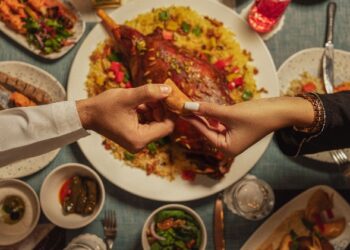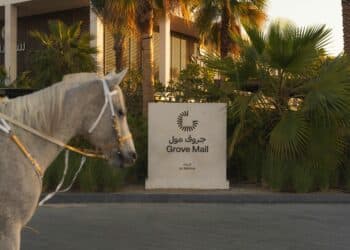Creating new F&B outlets is like going on an adventure vacation according to Dennis Kammerzell, the recently appointed executive chef at Al Baleed Resort Salalah by Anantara.

What’s your career background?
I was previously executive sous chef for Anantara The Palm Dubai Resort, where I oversaw the operations of six dining outlets and banqueting. I have over 12 years of experience as a chef and I’ve travelled the world, heading up kitchens in luxury hotels in Germany, Saudi Arabia, Dubai, Seychelles and the UK.
What’s your strategy for developing F&B concepts?
First comes the vision. If you can see the end, the rest is just a process. A new concept is like an adventure vacation – you source the location, then take into account the possibilities, the environment, the culture, the infrastructure and then you plan according to those things. The major challenges are the cost factor and coming up with the right products according to the market.
Tell us about the restaurants at Al Baleed Resort Salalah by Anantara:
We have all-day dining restaurant Sakalan – ‘the land of frankincense’ – with open kitchens and deli counters. Our signature restaurant is Mekong, which takes guests on a voyage along South East Asia’s river with cuisines from China, Thailand and Vietnam. We’ve also got beachside dining restaurant Al Mina, which translates to ‘the port’ in Arabic and features Mediterranean flavours with Lebanese, Italian, Greek, Turkish and Spanish using seasonal ingredients and seafood caught daily. Dining by Design is a private dining experience for two guests, hosted in a beach or garden setting with a connoisseur menu served by a personal chef and villa host, and lastly the ‘Spice Spoons experience is a specialised cooking course for Omani or Thai cuisine, hosted by myself.

Which experiences and influences do you draw on for your menu creation?
Writing a new menu is like writing a love letter to your crush. If you use the same ingredients as everyone else, you will not impress her; using terms or expressions that only you understand will confuse her. Make it too simple and she will be bored and uninterested; make it too fancy, it might not fit the budget. My goal is to create menus that are balanced, interesting and innovative, with a touch of something new to make people curious. People want to try new things and if they like it, hopefully they will come back with friends.
What advice would you offer to chefs starting out in this region?
Be very open minded as the Middle East is about so much more than Arabic food. The market is impressively varied and large and the competition does not sleep, so if you don’t push yourself, you will be left behind.
Which restaurants in Salalah do you view as your strongest competitors?
There is no competition, only guidelines. The smallest restaurant can have the best paratha or kabsa maker and you should not try to compete but learn and evolve.

Which suppliers do you work with?
We are currently working with a couple of local suppliers in Oman and some from the UAE. However, we are looking to work more within the local market to be more sustainable and for marketing purposes. So far, the only challenge has been the arrival time. It can take too long to get produce but in the end it is worth the wait for delicate Items.
How do you see the menus evolving going forward?
I think we will add more fresh products, and more balanced and healthy items. We’re also looking into using more local products with a mix of the outside world. We want to get the resort on the map as the capital of culinary and guest service experience.


































































